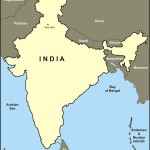Intelligence chiefs have direct and easy access to the political executive and are not required to tell other policy-makers about what transpires during their interactions with the political leader.
Normally, one would have expected Mr.Panetta to lead and co-ordinate the covert component and Admiral Mike Mullen, the Chairman, Joint Chiefs of Staff, to lead and co-ordinate the commando component. Instead, Mr.Obama entrusted Mr.Panetta with the responsibility for providing leadership for the entire operation including its covert as well as the commando components.This reflected his confidence in Mr.Panetta as the Director of the CIA and in his professional and political judgement.Mr.Obama’s confidence in the leadership of Mr.Panetta was vindicated by the spectacular success of the operation.
The way all the participants in the operation —whether civilians from the agencies or naval and other military officers from the Pentagon— smoothly worked together under the leadership of Mr.Panetta, a civilian heading a civilian agency, speaks very highly of the absence of organisational and service egos in the US. I am not sure whether such a decision by the Indian Prime Minister in a similar operation would have worked equally well due to ego conflicts, which are a bane of our system.
The operation also reflects highly on the leadership qualities of Mr.Obama. He not only monitored the operation in the various stages of its planning and execution, butalso did not flinch from the risk of taking decisions which could have damaged his political leadership if the decisions subsequently proved wrong.
Mr.Obama realised that the CIA might never be able to collect intelligence that could be certified as CERTAINLY correct and hence decided to authorise the raid on the basis of intelligence…
Mr.Obama’s leadership quality comes out strikingly from his decision to go ahead with the raid despite the possibility that the CIA’s analysis about the presence of OBL in his hide-out might prove to be wrong. There are four types of intelligence—CERTAINLY correct, MOST PROBABLY correct, PROBABLY correct, NOT CERTAIN. Very rarely do intelligence agencies get intelligence which can be categorised as CERTAINLY correct. The CIA’s conclusion on the basis of the analysis of the available intelligence regarding the presence of OBL in the hide-out came under the category of MOST PROBABLY correct. Mr.Obama realised that the CIA might never be able to collect intelligence that could be certified as CERTAINLY correct and hence decided to authorise the raid on the basis of intelligence, which was MOST PROBABLY correct. It was a virtual gamble and it turned out to be correct.
My last observation relates to the importance of privileged one-to-one interactions between an intelligence chief and his or her political leader. In important countries such as the US, the UK and Israel, such privileged one-to-one interactions exist. Intelligence chiefs have direct and easy access to the political executive and are not required to tell other policy-makers about what transpires during their interactions with the political leader. In India, this tradition was closely followed under the Prime Ministerships of Jawaharlal Nehru, Indira Gandhi and Rajiv Gandhi. Under subsequent Prime Ministers, this tradition has reportedly weakened partly due to the relative disinterest of the Prime Ministerial incumbents in operational matters and partly due to resistance to this tradition from other Secretaries to the Government.
In OP GERONIMO, the privileged access of Mr.Panetta to Mr.Obama and the close and frequent one-to-one interactions between the two played an important role in the success of the operation. This is something that needs to be emphasised on our policy-makers.




